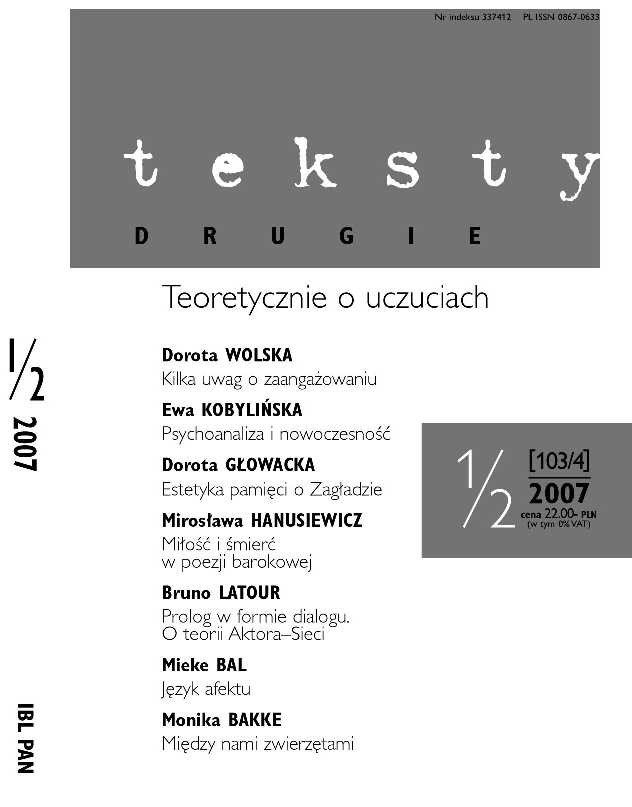Wsłuchując się w ciszę. Estetyka pamięci o Zagładzie według J.-F. Lyotarda
Lending an Ear to the Silence Phrase: Lyotard’s Aesthetics of Holocaust Memory
Author(s): Dorota GłowackaSubject(s): Literary Texts
Published by: Instytut Badań Literackich Polskiej Akademii Nauk
Keywords: Holocaust literature; Lyotard; rhetorics; aesthetics
Summary/Abstract: Drawing on Jean-François Lyotard’s concept of the differend, Glowacka points out a radical incommensurability between different ways of “speaking about Auschwitz”. She argues that Holocaust literature has become the site of the conflict between ethics and aesthetics, and she refers to this conflict as the differend between the aesthetic and ethical phrases. Holocaust remembrance today requires that we bear witness to this differend. In his writings on the sublime, Lyotard redefines Kant’s category as the affective testimony to the happening of the event. In The Differend, he deploys the idiom of the sublime to communicate the differend’s resistance to representation, which can only be signaled through a silent feeling. Lyotard relates this silence to the silence imposed on Holocaust survivors’ “phrase” by the regimen of knowledge. In Holocaust literature, however, “silence” is also a powerful rhetorical figure, the figure of the sublime. Yet, considerations that fall under the domain of rhetoric and aesthetics are often excluded from the debates about the Shoah since they are thought to be subservient with respect to the ethics of memory. Glowacka argues against the subsuming of aesthetics by ethics within “the Holocaust genre of discourse”: on the contrary, it is the force of the tension between them that constitutes the affective force of Holocaust literature. In this way, Holocaust literature bears witness to the continuity of Holocaust memory, to the life of the memory phrase “Remember!”
Journal: Teksty Drugie
- Issue Year: 2007
- Issue No: 1-2
- Page Range: 41-59
- Page Count: 19
- Language: Polish

